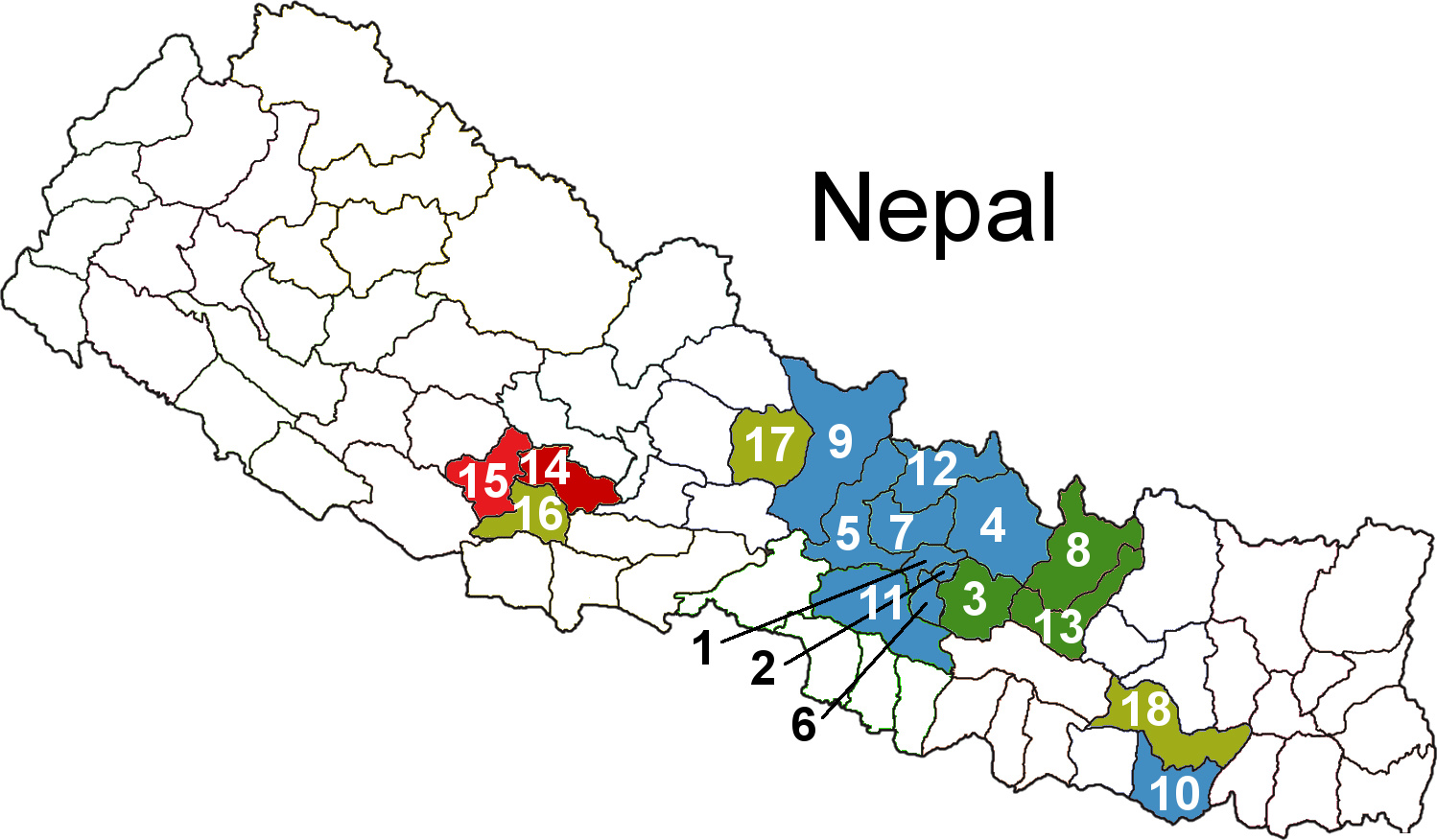Projects in Nepal
We are or have been active in the following districts of Nepal:
1 - Kathmandu
2 - Bhaktapur
3 - Kavre-Palanchok
4 - Sindhupalchok
5 - Dhading
6 - Lalitpur
7 - Nuwakot
8 - Dolakha
9 - Gorkha
10 - Saptari
11 - Makwanpur
12 - Rasuwa
13 - Ramechhap
14 - Gulmi
15 - Pyuthan
16 - Arghakanchi
17 - Lamjung
18 - Udayapur
In the climate protection project we are building stoves for 28 VDCs (about 10 villages each) in the districts Kavre-Palanchok, Dolakha and Ramechhap (coloured green). For each of these stoves the Gold Standard Foundation issues emission certificates for the CO2 reduction. The project is registered under the number GS1191.
We agreed with the Alternative Energy Promotion Center (AEPC) that "Die Ofenmacher" supplies stoves to about 12,000 households in the district of Gulmi (No 14) in the years 2014 to 2016. The project was successfully completed in spring 2017.
We also agreed with the AEPC that "Die Ofenmacher" provided stoves for 22 VDCs and 1 municipality in the district of Pyuthan (No 15) in 2016, 2017 and 2018, in total about 20.000 households.
The districts Arghakhanchi (No 16) and Lamjung (No 17) were agreed with AEPC for the years 2018 to 2021.
Since the beginning of 2022, Nuwakot (7) is the focus of our activities.
How we work
Our stove makers install clay stoves in rural households in Nepal. The cost for one stove is currently around 12 €. 100% of your donations go directly to the projects.
The stove construction is kept simple. The required materials are mostly available locally. You can find a short video (4 minutes) documenting the the making of a stove.
The stove makers receive two weeks of training before being contracted, administered and paid by Anita Badal, managing director in our partner organisation Swastha Chulo Nepal. She organizes meetings in the villages to inform about health problems and disadvantages of traditional cooking. At these occasions proper handling and maintenance of the stoves is demonstrated too.
Occasionally, if more stove makers are needed, Anita arranges training events.
Nepali or foreign volunteers visit the villages to gather feedback from the household using standardized questionaires. We are interested in the level of satisfaction of the owners and any problems they have, check the quality of the stove construction and how well it is maintained.
Advantages of the projects
- The stoves are built using locally available material with help from the family who needs the stove. As the owners help in the building they are able to maintain and improve their stoves.
- The trained stove makers have an additional job and income helping to reduce unemployment and financial problems.
- Involving the owners in the provision of the building materials and manufacture of the stoves helps them to identify with their stove and helps lower the cost of making the stove. If groups of people work together to build stoves these effects are magnified.
- The projects bring long-term benefits. The long demand shows that the stoves are accepted and desired. We build on this to advertise, stimulate demand and increase the penetration rate of our stoves.


